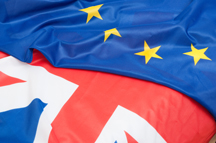BBC Two hosted the second debate between Nick Clegg and Nigel Farage on Wednesday evening 2 April. The debate, moderated by David Dimbleby, explored Britain’s position in Europe and the possibility of a referendum on its EU membership. The first of two debates took place on Wednesday 26th March.
The heated discussion revealed the leader of the UK Independence Party wanted to “stand tall and trade with the world” and the Lib Dem leader Nick Clegg advocating a strong Britain within the EU and insisting that “if you want to reform something you have to lead from within it”.
A YouGov poll, conducted immediately after the televised debate, declared that Nigel Farage had won by 68% to 27% and, therefore, disclosed UKIP as the overall winner of both debates.
A Lim Dem official, however, said “How often do we get that much airtime to so many viewers? Whatever happened, this would have been a success.”
The debate proved to be more aggressive than last week with the politicians clashing on foreign policy. Farage criticised the people of the Ukraine who “toppled a democratically elected leader”. Clegg attacked Farage by claiming the latter was “seeking to justify [Putin’s] actions” and accused the UKIP leader of admiring Putin’s actions in Syria.
Regarding immigration, Farage claimed the UK needs to “build a house every seven minutes just to cope with immigration” and said wages declined over the last decades due to uncontrolled immigration from Europe. Clegg, however, pointed to the fact that it is important to make sure the “infrastructure and support for public services is in place”, illustrating his point with the changes that the coalition has made to the benefit rules.
 Dimbleby asked both politicians to offer their view on what the EU will look like in ten years. Clegg thought “it will be very bright”. Farage, however, said Britons “won’t be members of the EU in ten years”.
Dimbleby asked both politicians to offer their view on what the EU will look like in ten years. Clegg thought “it will be very bright”. Farage, however, said Britons “won’t be members of the EU in ten years”.
In his concluding remarks, Farage urged Britain to “come and join the people’s army” and “topple the establishment who led us to this mess”. Clegg, on the other hand, encouraged people to “understand that there are complexities and challenges in the modern world but also understand that by working with other countries, we deal with those challenges and make Britain richer, stronger and safer”.
On BBC Breakfast on Thursday morning 3rd April, Prime Minister David Cameron was asked to give his opinion on the debate and their participants’ performance. Cameron said the problem with the debate is that both men “have extreme views” and “they’re both wrong”. According to him, the right answer is to renegotiate the UK’s position, get a better deal and then give people the choice in an in/out referendum”.












